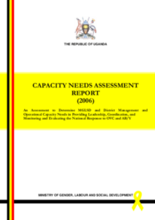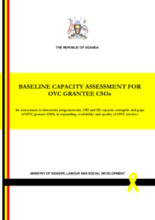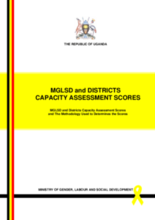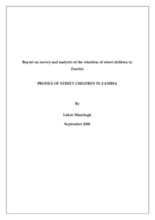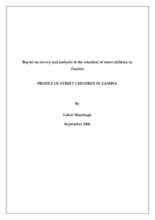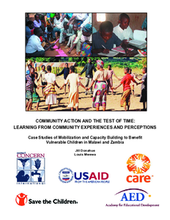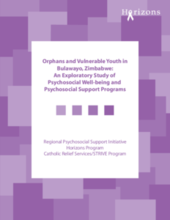Displaying 601 - 610 of 665
An Assessment to Determine MGLSD and District Management and Operational Capacity Needs in Providing Leadership, Coordination, and Monitoring and Evaluating the National Response to OVC and AB/Y
Through an examination of over 800 thematic drawings and stories, regarding ‘moving house’, produced by children aged 10–17 years in urban and rural communities of Lesotho and Malawi, this paper explores southern African children’s representations of migration.
Findings and methodology of a capacity assessment of OVC Grantee CSOs in Uganda.
The methodology and tools used to score a capacity assessment to determine Uganda's MGLSD and district management capacity needs to provide leadership and coordination of the national response to OVC and AB/Y.
An assessment to determine MGLSD and District Management and operational capacity needs in providing leadership, coordination, and monitoring and evaluating the national response to OVC and AB/Y in Uganda.
This document sets out the thinking and plans regarding the use and management of Technical Service Organizations (TSOs) within the CORE Initiative project for the prevention of OVC and HIV among youth in Uganda.
Profile of street children in Zambia. Emphasis on generating data for policy development. Collected data analyzed at a national level but datasets are available for further analysis in terms of geographical location, gender, or other population sub-sets.
Profiles street children in Zambia. Outlines good practices and priorities for use in the development, coordination, and implementation of a national strategy.
Research on the effectiveness and sustainability of established initiatives for vulnerable children in Zambia and Malawi. Outlines implications for approaches to community mobilization in current programming efforts.
Investigates psychosocial well-being and psychosocial support services for youth affected by HIV/AIDS in Zimbabwe. Includes summary of key findings and implications for programming and research.

